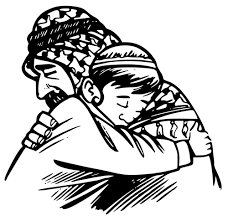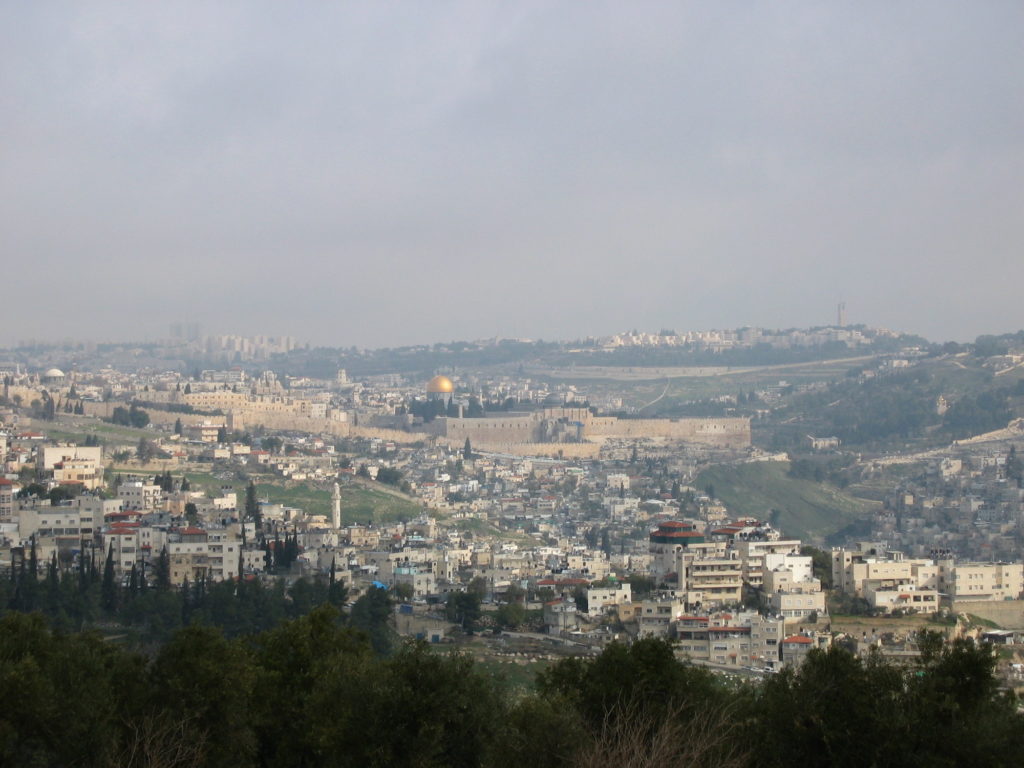Psalm 127 along with Psalm 128 are two of the greatest pro-family passages in the Bible.

Psalm 127:1, Unless. Building, creating, achieving anything in life that is of meaningful and of redeeming value is difficult enough as it is, but even more so without YHVH’s help. Additionally, our spiritual endeavors unless sanctioned and supported by Elohim will, at the very least, be a monument to human achievement, if even that, and nothing more, and at the most will be a fruitless effort that is doomed to failure (in the full and ultimate sense, that is, temporally and eternally). This goes for just about everything we do, unless we put Elohim first and seek his highest ways.
Psalm 127:3, Children. Two of the first seven implicit and explicit commands that Elohim gave to the first humans in Genesis chapters one and two involved procreation: be fruitful and multiply and engage in marriage. Anyone that deems having children is a curse goes against the will of the Creator and is listening to the devil who wants to kill, steal and destroy. He is liar, murderer and destroyer of all that Elohim called good including marriage, children and families.
Contrary to what the selfish atheists, secular humanist and murdering abortionist nihilists will tell us, children are a blessing from Elohim, and with them comes blessings as this and the next two verses declare. Anyone or any philosophy or ideology that says otherwise is a damnable, devilish lie. Too much of society has embraced this lie that includes other lies such as the legality and acceptability of abortion, the need to de-populate the planet by having less children, and the idea that pedophilia and the sexploitation of children is acceptable. These things are manifestations of an all-out war by Satan against Elohim’s grand and glorious design to recreate himself, in a small sense, through marriage and family.
Heritage. Children are a blessing from YHVH. Those who listen to the devil, knowingly or unknowingly, believe the opposite. Such are selfish and miserable people. Do they ever stop to think that if they’re parents had had their attitude toward children, they would never have granted the gift of life?
Reward. What comes from the womb is a reward, not a curse, contrary to what the God-hating, secular humanist atheists, nihilistic, materialistic evolutionists would tell us.
Psalm 127:4, Like arrows. As arrows are shot out to hit targets, so are children in the hand of a father. Through children, families can accomplish goals, create enterprises, advance the kingdom of Elohim, combat evil and create more children.

Psalm 127:1, 3, Builds the house…Children. What does building a house and having children have to do with each other? Why does the psalmist juxtapose these ideas in the psalm? Simply this. A house is more than a building. It’s purpose is to house families. The home and family are the foundation of society, which is comprised of houses or families. One who has a home full of children is blessed and happy, and with a large family comes honor (not shame, v. 5) and influence with if not power over one’s enemies (v. 5).
Psalm 128:1, Fears YHVH. The fear of YHVH and walking in his ways is the basis for a blessed life, since such a mental disposition and spiritual orientation in one’s life ensures that one is lined up with the Word, ways and will of the Creator, which bring life, prosperity, blessing, love, joy, peace and happiness in this life and eternally. The Bible is clear on this and human history, starting from the fall of man at the tree of knowledge, proves that when people go against the Word, will and ways of Elohim, things don’t go well for him.
Psalm 128:2, Labor of your hands…happy. One of the benefits of fearing YHVH (vv. 1, 4) and walking in his ways is that we will experience joy, fulfillment and happiness in the work of our hands no matter what it may be. This shows that mental attitude and spiritual orientation is the key to success and happiness in life regardless of one’s circumstances.
Psalm 128:3, Fruitful vine…children. Those who fear YHVH (vv. 1, 4) will be blessed with a fruitful womb and a large family. Nowhere does the Bible state that children are a curse, only a blessing. Only those who are tuned into the voice of the devil, who is intent on killing, stealing and destroying, view children as a curse, a burden and an inconvenience.
Psalm 128:6, Peace. Heb. shalom. Shalom here is spelled here with all of its letters and not defectively minus the letter vav. This indicates a full, undiminished peace from Elohim—a peace that is full and complete and that covers all areas of life present and future. Such is the blessed heritage of those who fear YHVH and walk in his ways (vv. 1, 4). This psalm shows that marriage and families combined with fearing YHVH and walking in his ways are what bring this blessing along with YHVH full peace.







